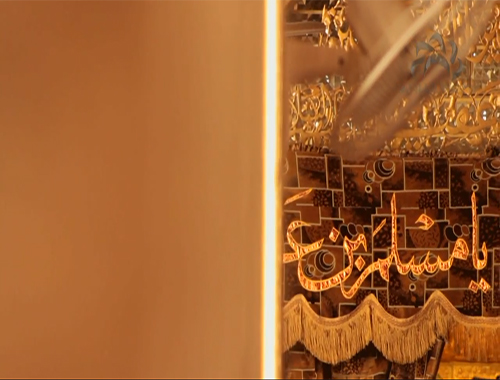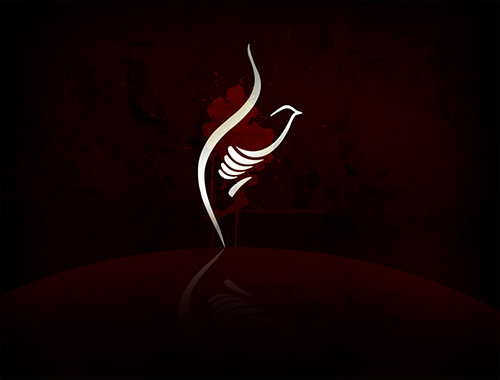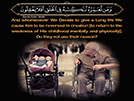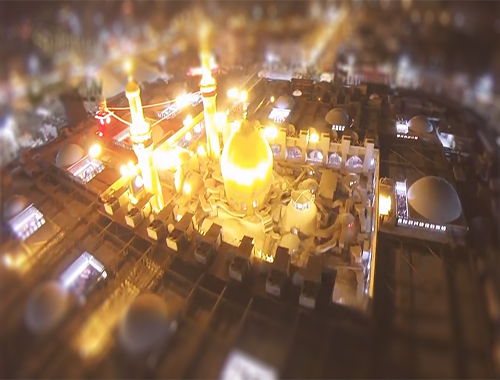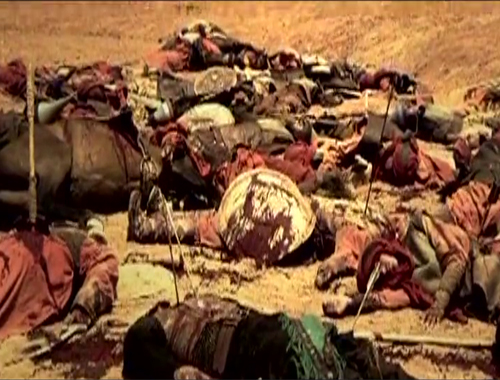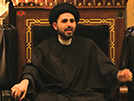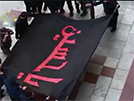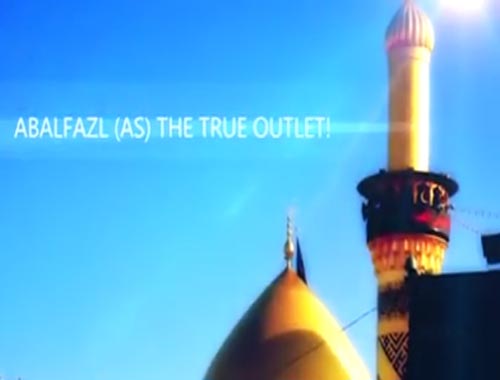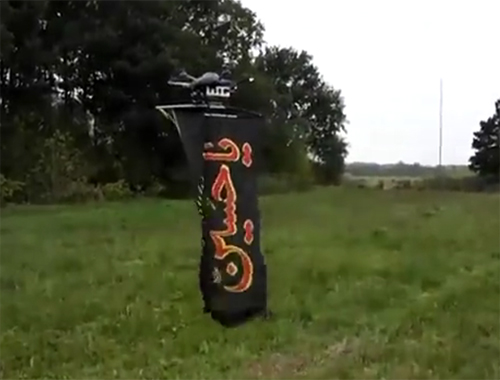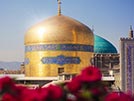the Great Prophet of Islam
- Details
- Hits: 2965
the Great Prophet of Islam
Birth and Childhood
ore than one thousand forty hundred years ago, on April 25 in 570 A.D., a child was born in Mecca. His mother, Aminah, the daughter of “Wahab ibn ‘Abd Manaf, was a patient and pious woman. Allah selected her as the mother of Muhammad (p.b.u.h.) (Allah’s Messenger) and was similar to Virgin Mary(p.b.u.h.), mother of Jesus Christ (p.b.u.h.); the only difference is that Aminah became pregnant just as other women do, unlike Mary. She lived like Virgin Mary, but instead of Jesus Christ she was pregnant with the best creature of the world as if to keep the deposit of prophethood safe. Muhammad’s father, ‘Abd Allah ibn ‘Abd al-Muttalib, the dearest child of ‘Abd al-Muttalib, was the most handsome and popular man of the household. He had a pure and confident heart, and was satisfied with what would be destined for him; he was also a man of sacrifice at hard times. Most of the women loved ‘Abd Allah because he was very handsome and attractive, but he was a pious and modest man and did nothing unlawfully. When coming back form Syria to Yathrib ‘Abd Allah passed away and was unable to see his child. According to the traditions of large families in Mecca Aminah, put Muhammad (p.b.u.h.) under the care of a wet-nurse named Halimah to be cherished in the vast plain and far away from the city impurity. Halimah, the pure-hearted and kind woman, was fond of the sweet child whose entrance to the tribe brought them lots of favours and divine graces. Nobody knew that one day this child will be the Prophet of mercy, and his magnificent name will be called upon by many Muslims to the end of the world. This is surely the honour for the people all over the world. Halimah returned Muhammad (p.b.u.h.) to Mecca when he was five.
The Life of Muhammad (p.b.u.h.),
Two years later Aminah, taking Muhammad (p.b.u.h.) with herself, went to Medina to see her father and mother and to visit her husband’s tomb. After one month, when returning to Mecca with her son, Aminah passed away in a place called al-Abwa’, and Muhammad (p.b.u.h.) became an orphan at the age of six from both father and mother. The pain of orphanhood distressed his fine soul more than before. Afterwards, a woman called Umm Ayman took Muhammad (p.b.u.h.), now like a withered flower, to Mecca. The death of Muhammad’s parents took place by Allah’s willing; in this way Allah tested Muhammad (p.b.u.h.) of his faith at the early ages of life that he may feel the sufferings of human being and those deprived. From that time on his grandfather cherished him. ‘abd al-Muttalib was the father of the youths of the Quraysh and a brother for the middle-aged. There was an obvious sovereignty in his appearance, and in his stature there exists a strong will accompanied by a graceful tranquility and calmness as well as a full sense of satisfaction, but far away from any kind of suffering and disgrace. He played the role of a haven for people, was close and sociable with them, was the most popular man among the household. He never got angry with anyone and never counted himself as superior or boastful to others. The people of Mecca confided him and were gratified with his judgment, even if it is not in their favour. He was very kind to his exalted and magnanimous grandson whose shining appearance was full of great Divine signs. Taking care of Muhammad (p.b.u.h.) (the Messenger of Allah) like a real father, ‘abd al-Muttalib never called him a child of ‘Abd Allah but ‘my child’. In this way he felt himself as much as possible close to him. However, two years later ‘abd al-Muttalib passed away, and Muhammad (p.b.u.h.) became deprived of his grandfather, too. ‘abd al-Muttalib’s anxiety in the last moments of his life was for Muhammad’s sake, who was his dear grandson.
After the decease of ‘abd al-Muttalib, Muhammad (p.b.u.h.) went under the care of his paternal uncle, Abu Talib. He took care of Muhammad (p.b.u.h.) properly and took him constantly to wherever he went.
Up to the last moments of life, with full affection and kindness, he cherished and protected his dear nephew. Even in the most difficult and unpleasant situations wherein the Quraysh aristocrats, who were stubborn people, helped one another to kill Muhammad (p.b.u.h.), Abu Talib protected his dear nephew while endangering his life, he neither feared anything nor cared about the others’ complaints.
Youth and Adolescence
The calmness, dignity and thoughtful countenance of Muhammad (p.b.u.h.) was noticeable among the coeval youths of his time. Abu Talib loved him very much; he was always with Muhammad (p.b.u.h.), caressed him gently that he may not feel the pain of orphanhood. At the age of twelve Abu Talib took Muhammad (p.b.u.h.) with himself in a business trip to Syria. This was a usual practice in al-Hijaz. In this travel Abu Talib met a Christian monk called Buhira in a part of Syria called Busra. When meeting Muhammad (p.b.u.h.), a child of ten or twelve, Buhira understood that, as stated in the Bible in relation to the signs, this child would be the last prophet. In order to be more confident, Bahira administered Muhammad (p.b.u.h.) an oath to two of the most famous idols of Mecca called al-Lat and al-‘Uzza so that he may answer the questions truly. Muhammad (p.b.u.h.), disturbed and fearful, said: “These idols are my enemy. Let me swear by Allah! Buhira was certain that this child is the honorable Prophet of Allah who does not believe in anything and anybody except for Allah, the Exalted. Bahira suggested to Abu Talib to protect this child more than before, especially in front of the Jews, because this child will be granted a great mission in future. Muhammad (p.b.u.h.) passed youth and adolescence. This period, which is usually full of lust, impurity and quarrel for the youths, was an age accompanied by purity, righteousness, thought, dignity, nobleness and grandeur for the young Muhammad (p.b.u.h.). Muhammad (p.b.u.h.) was such a pious and trustworthy person that the people of the Quraysh would put their precious things and deposits under his care. Truthfulness, righteousness, affection and patience were among his remarkable features. He was far away from the impurities of Mecca and immaculate from any kind of idolatry such that everyone was astonished at him. He was so trustworthy that he became well known as ‘Muhammad (p.b.u.h.) the Trustworthy’. ‘Trustworthy’ means righteousness and trust. From the beginning of youth the signs of dignity, power, bravery and strength were manifest in Muhammad (p.b.u.h.)’s countenance. At the age of fifteen he participated in a Quraysh battle against Hawazin tribe and protected his paternal uncles against the spear thrusts. This incident shows the physical and spiritual strength of Muhammad (p.b.u.h.). These signs of bravery were obvious in most of the Islamic battle. Imam ‘Ali (p.b.u.h.), one of the bravest people of the time, says: “Whenever we got a problem at war, the Holy Prophet (p.b.u.h.) would protect us, and no one would face the enemy in as much as him, however he would refrain from childish and useless disputes. Arabia was the center of idolatry at that time. People or tribes used to make idols out of wood, stone, or date trees and worshipped them. The living environment of Muhammad (p.b.u.h.) was impure with prostitution, indecent acts, war and fighting. However, Muhammad (p.b.u.h.) did not sully his reputation with any sin and was clean from any kind of idols and idolatry. One day Abu Talib said to Abbas, one of the youngest uncles of Muhammad (p.b.u.h.), “I never heard any lie of Muhammad (p.b.u.h.) and never saw him play with children in the streets.” One of the wonders of the human world of human being is that Muhammad (p.b.u.h.) kept himself pure in a society whose people were all impure and indecent, and the prostitutes were known by flags on the roof of their houses. He was so pure that no one could criticize him for even the most trivial sins. Who can see the manner and behaviour of Muhammad (p.b.u.h.) from childhood to adolescence and does not bow down in front of his grandeur and his spiritual and physical purity?!
Muhammad’s Marriage
When Muhammad (p.b.u.h.) became famous for trustworthiness and righteousness, a very rich woman from Mecca called Khadijah bent ‘Khuwaylid who was also pious and decent, requested from Muhammad (p.b.u.h.) to go to Syria for business and gave him a share of the financial profits. Muhammad (p.b.u.h.) accepted this offer. Khadijah sent her servant Maysarah with him. When he returned from the profitable travel of Syria, Maysarah gave a precise report of the trip to Khadijah and admired Muhammad’s trustworthiness and righteousness. He said to Khadijah: “When we got to Busra, Muhammad (p.b.u.h.) sat in the shadow of a tree to have a rest; at the same time a monk in his house of worship met Muhammad (p.b.u.h.) suddenly. He came to me and asked me some questions and then said: “That man leaning on the tree is the Prophet about whom some good tidings have been mentioned in the Holy Bible and the Torah and I read them before”. Khadijah was impressed by the trustworthiness and honesty of Muhammad (p.b.u.h.). Later she requested from Muhammad (p.b.u.h.) to marry her and he accepted the proposal. Khadijah gave all her wealth to Muhammad (p.b.u.h.) and granted him her slaves. Muhammad (p.b.u.h.) manumitted the slaves, and this was the first step of Holy Prophet (p.b.u.h.) in fighting against slavery. Muhammad (p.b.u.h.) wanted to show that we can live simply and far away from any transient lust as well as in no need of the slaves and slave-maid. Before the marriage, Khadijah’s house was a shelter for the poor and indigent. When she married, she continued to help the poor and was constantly generous with the indigent. Halimah, the wet-nurse of Muhammad (p.b.u.h.), went to his foster-child Muhammad (p.b.u.h.), in the years of drought and rainlessness.
Muhammad (p.b.u.h.) put his cloak under her feet and listened to her speech, and when returning he helped his foster mother (wet-nurse) as much as possible.
Instead of engaging with the material affairs of Khadijah’s wealth, Muhammad (p.b.u.h.) did nothing except for help to the poor and the indigents, and spent most of his time out of Mecca in the mountains and caves, contemplating about the creatures of Allah and the wonders of the universe. He was also involved in praying to Allah. Many years passed in this way. Khadijah, a dear and faithful wife, knew that when Muhammad (p.b.u.h.) was not at home he was in the cave of Hara’ that is situated in northern Mecca at the top of a mountain where most of people go nowadays and enjoy its ground. This place which is away from impurity, idolatry and tumult of the city witnessed the worship and prayer of Muhammad (p.b.u.h.), especially in Ramadan when Muhammad (p.b.u.h.) spent all of the month there.
These black cliffs and this cave witnessed the divine revelation and the shining of divine brightness on the pure heart of the Quraysh. This mountain is Jabal al-Nur (Mountain of Brightness) that is still luminous.
The Commencement of the Mission
Before the 27th of Rajab Muhammad (p.b.u.h.) would pray to Allah, the Creator of the world, in the Cave of Hara’, and in his sleep he would have truthful and real dreams. His great soul became gradually ready for the divine revelation.
At that magnificent night Gabriel, the Angel of Divine revelation, was sent to recite some Qur’anic verses to Muhammad (p.b.u.h.) and bestowed upon him the great rank of prophethood. Muhammad (p.b.u.h.) was forty at that time. Gabriel asked Muhammad (p.b.u.h.) to recite some verses in silence, paying attention to the unique Creator of the world:
اقْرَأْ بِاسْمِ رَبِّكَ الَّذِي خَلَقَ * خَلَقَ الإِنسَانَ مِنْ عَلَقٍ * اقْرَأْ وَرَبُّكَ الأَكْرَمُ * الَّذِي عَلَّمَ بِالْقَلَمِ * عَلَّمَ الإِنسَانَ مَا لَمْ يَعْلَمْ
“Read: In the Name of thy Lord who creath * creath man from a clot *
Read: And thy Lord is the Most Bounteous, * who teacheth by the Pen,*
Teacheth man that which he knew not”
Muhammad (p.b.u.h.), an illiterate and ordinary person, replied: “I cannot read”. The Angel compelled him to read but he got the same answer. For the third time Muhammad (p.b.u.h.) felt that he can read under Gabriel’s eyes. These verses were the beginning of a hard and difficult mission. Gabriel did his mission, and Muhammad (p.b.u.h.) climbed down the mountain of Hara’ and went to Khadijah’s house.
Muhammad (p.b.u.h.) explained for Khadijah what happened to him. Khadijah knew that the great mission of Muhammad (p.b.u.h.) started. She consoled and assured Muhammad (p.b.u.h.) and said: “Surely, Allah the Kind will not let you alone because you are kind with your family and relatives, help the indigent and assist the oppressed.” Muhammad (p.b.u.h.) said: “cover me with some cloths.”, and she did. Muhammad (p.b.u.h.) slept. Khadijah went to her cousin Waraqah ibn Nawfal, one of the knowledgeable men of the Arab community and told him what happened to Muhammad (p.b.u.h.). In his answer to his cousin, Waraqah said: “What happened to Muhammad (p.b.u.h.) is the commencement of prophethood, and the great honour of messengership will be bestowed on him.” Feeling assured, Khadijah came back home.
The First Muslims
The Holy Prophet (p.b.u.h.) started the call to Islam from his own house. First his wife Khadijah and then his cousin ‘Ali declared their faith in him. Gradually some others were converted to Islam. The first call to Islam was covert. Muhammad (p.b.u.h.) and his companions, away from the people’s sights, would pray in hidden places.
Inviting the Relatives and Intimate Companions
After three years of the secret call wherein Muslims and the Holy Prophet (p.b.u.h.) would worship Allah, the following divine revelation was sent down:
فَاصْدَعْ بِمَا تُؤْمَرُ
“So proclaim that which thou art commanded, and withdraw from the idolaters.”
Thus, the Holy Prophet (p.b.u.h.) was commanded to reveal his call, so he started to invite his own relatives and intimate companions; in this regard the divine command remarks:
وَأَنذِرْ عَشِيرَتَكَ الأقْرَبِينَ
“And warn thy tribe of near kindred.”
When commanded, Muhammad (p.b.u.h.) asked ‘Ali who was fifteen at the time to prepare the food and invite the clan of ‘Abd al-Muttalib with whom the Holy Prophet (p.b.u.h.) would clarify his invitation. Hamzah, Abu Talib, Abu Lahab and other relatives came to the meeting. But Abu Lahab whose heart was full of hatred and envy disturbed the meeting with his useless and foolish sayings. The Holy Prophet (p.b.u.h.) suggested that the meeting be held tomorrow. When the participants ate their food, the Holy Prophet (p.b.u.h.) started his speech with the Name of Allah, admired His Oneness and then he said: “Truly no leader tells a lie to his companions. I swear by Allah the One that I am his Messenger to you and the inhabitants of the world. O my relatives! Just as you sleep, so too you will die; just as you wake up, so too you will be resurrected on the Day of Judgment; you will see the consequences of your own deeds and acts.
For the righteous people there will be an everlasting heaven of Allah and for the evil- doers the eternal hell. No one can bring you such best things as I do. I wish you the prosperity of this world and the world to come. I am commanded on behalf of Allah to summon you toward Him. He who supports me will be my brother and my executor as well as my successor.”
When the Holy Prophet (p.b.u.h.) finished his speech, silence ruled over the meeting. All were pondering. Finally Imam ‘Ali who, fifteen years old then, stood up and said: “O the Holy Prophet (p.b.u.h.) I am ready to support you.” The Holy Prophet (p.b.u.h.) ordered him to sit. Muhammad (p.b.u.h.) repeated his words three times and ‘Ali stood up in each time. Addressing his relatives, the Holy Prophet (p.b.u.h.) said: “This young man (‘Ali) is my brother, my executor and my successor among you. Listen to him and follow him.” When the meeting finished, Abu Lahab and some others told Abu Talib, Imam ‘Ali’s father: “You see! Muhammad (p.b.u.h.) ordered you to follow your son! He made him superior to you!”
It was clear from the beginning of the Holy Prophet’s invitation that these divine stations ie Prophethood and Imamate are inseparable and ‘Ali’s (p.b.u.h.) faith and knowledge toward the Holy Prophet (p.b.u.h.) were such that he would support him and face all the problems bravely. Three years after the Mission the Holy Prophet (p.b.u.h.), after inviting his relatives, started to reveal his prophethood public for all people.
One day he climbed up the Safa Mountain and declared loudly: “Lo!” (This word conveys alertness and mobilization). Some people of the tribe hurried toward the Holy Prophet (p.b.u.h.). Then the Holy Prophet (p.b.u.h.) addressed people and said: “O People. Do you accept my words if I say that behind this mountain are your enemies who attempt to possess your property and kill you? All of them said: We have never heard any lie of you. The Holy Prophet (p.b.u.h.) then stated: O people! Save yourselves from the fire of the hell. I warn you of the divine painful punishment. Like a watchman who sees the enemy in the distance and warn his tribes of the existing danger, I make you aware of the Day of Judgment and its chastisement.” The people became more conscious of the Great Mission of the Holy Prophet (p.b.u.h.). But Abu Lahab behaved foolishly toward the important subject of messengership. As soon as the Prophet’s message became public, people changed their behaviour toward the Holy Prophet (p.b.u.h.). Those who used to love him evidently started to vex him. The pioneers of invitation were of those who knew the Holy Prophet (p.b.u.h.) more than others and believed in his righteous acts and speech. With the exception of Khadijah, ‘Ali and Zayd ibn al-Harith, the manumitted slave of the Holy Prophet (p.b.u.h.), some other people like Ja‘far ibn Abu Talib, Abu Dharr al-Ghifari, ‘Amru ibn ‘Abasah, Khalid ibn Sa‘id, Bilal, Yasir and his wife Sumayyah were all of the first forerunners in embracing Islam, and attempted to inform the youths of Mecca and to propagate Islam.
Gradually people became separated from one another; those who believed in Islam tried to invite the idolaters to Islam. On the other hand, the idolaters who were afraid of losing their property and chairmanship used to torment the Muslims and tried to convert them from the new religion. Muslims, and especially the Holy Prophet (p.b.u.h.) were hurt by the idolaters. One day when the Holy Prophet (p.b.u.h.) was praying in the Ka‘ba with his head bowing down Abu Jahl, one of the most stubborn enemies of Islam, scattered the rumen of a dead camel over the Holy Prophet (p.b.u.h.)’s neck. When the Holy Prophet (p.b.u.h.) went out of his house for praying, people used to put thorns on his way to injure his feet in the darkness. Sometimes the unbelievers would throw stone and dust him. One day the dignitaries of the Quraysh attacked him among them ‘Uqbah ibn Abi Ma‘it who turned a piece of cloth around Holy Prophet’s throat and endangered his life. These acts were repeated many times. As Islam was growing more among the people, the idolaters increased their vexation and conspiracy. The Muslim sons were tortured by their fathers and Muslim brothers were tormented by their infidel brothers. The truth- seeking youths who rejected the superstitious and false beliefs of their fathers and were converted to Islam went to jails and even their fathers and mothers would not give them food.
But those faithful Muslims with sunken and tearful eyes and dried lips out of hunger and thirst would pray to Allah constantly. The unbelievers covered the slaves with armours and put them in hot sunshine on hot pebbles to burn their body skins. They burned some Muslims with hot iron, roped their feet and dragged them on hot pebbles. Bilal was an Abyssinian slave whose master dragged him on hot ground and put heavy rocks on his chest; however, he tolerated all these tortures and would say: “Allah is the Absolute One.” as well as recalled Almighty Allah. They roped Yasir to two camels and moved them to two opposite ways, so he became torn apart. They tortured Sumayyah, the mother of ‘Ammar terribly. However, the pure believers would accept death warmly with all these tortures and would not reject their faith in Allah the One.
When the unbelievers failed to attain their goals through torments, they started to threaten and allure the Muslims, as the popularity of the Holy Prophet (p.b.u.h.) among people, the tribes and followers increased. The unbelievers decided to meet Abu Talib, the paternal uncle and the unique supporter of the Holy Prophet (p.b.u.h.), after the meeting, they addressed Abu Talib thus:
“O Abu Talib! You have superiority over us in age and honour. Your nephew Muhammad (p.b.u.h.) curses our gods and mentions our customs and fathers blasphemously as well as counts our beliefs as worthless and insignificant. Tell him to stop his acts and do not address our idols insultingly. Otherwise, you may give us the authority to control him and you should not support him further.” Abu Talib promised to give their messages to the Holy Prophet (p.b.u.h.). In response to his uncle, the Holy Prophet (p.b.u.h.) said: “O My dear uncle! I swear by Allah that had they given me the sun in my right hand and the moon in my left in order to prevent me preaching Allah’s religion I would not have agreed. I should attain my goal that is Islam or sacrifice my life in this way.” Abu Talib said to his nephew: “I swear by Allah that I will be protecting you to the most. You should fulfill your great mission.” Finally the pharaohs of Mecca tried to allure him, so they told Abu Talib they were ready to give Muhammad (p.b.u.h.) wealth, kingship and beautiful women provided that he stops preaching the new religion and refrains from cursing our idols.
But the Holy Prophet (p.b.u.h.) did not pay attention to their speech and invited them to believe in Allah. These short-sighted people could not accept the worship of Allah instead of their idols. Therefore, Abu Jahl and others started torturing the Holy Prophet (p.b.u.h.) and Muslims and attempted to vex and ridicule them. However, the Holy Prophet (p.b.u.h.) faced the problems like a mountain and talked about Allah, Islamic rules, and the Holy Qur’an in everywhere he was and encouraged people to embrace Islam through reading divine verses. He stated: “Allah is the unique Allah and the owner of this world and the world to come. You should only pray to Him and fear his greatness. All powers belong to Allah. I, you and all will be resurrected one day get rewards for our good deeds and be punished for the evil ones. You people! Refrain from sins, lies, calumny and bad language.” When the unbelievers found the sweetness and attractiveness of Allah’s speech, they felt they were unable to stop Muhammad (p.b.u.h.) so they started to accuse Islam and the Prophet (p.b.u.h.) with magic and sorcery to help people not believe in Muhammad’s prophethood. For instance, they requested from the Holy Prophet (p.b.u.h.) to bring Allah and the angels, or to build a golden palace or a garden with water and trees in it and the like. The Holy Prophet (p.b.u.h.) replied: “I am only a messenger and cannot perform miracles without Allah’s leave.”
In the fifth year of the Mission a group of the Holy Prophet’s companions who were eighty in number and suffered from the torment of unbelievers went to Abyssinia under the Holy Prophet’s consent. Abyssinia was a safe and peaceful place, and its king was al-Najashi a kind Christian man. The Muslims wanted to worship Allah and work there peacefully. But the Muslims were not safe of the Meccans’ vexation even in there. The Meccans sent some gifts to al-Najashi so that he may return the Muslims to Mecca. But the Abysinnian king said: “The Muslims have selected my land among others. I should investigate the reason for their compliant.” Then he ordered to bring the Muslims in the king’s court. He asked them to state the reason for their migration and to introduce their Prophet and new religion. On behalf of the immigrants Ja‘far ibn Abi Talib stood and said: “We were ignorant people; we used to worship the prayed idols; eat carrion, did indecent acts, did not observe the neighbours’ rights, the powerful men worship disregard the weak ones until Allah selected a Holy Prophet (p.b.u.h.) from among us and we knew him by veracity and trustworthiness. He invited us to worship the unique Allah and wanted us to stop worshipping wooden and stony idols; he has recommended us to be truthful, trustworthy, kind to the relatives, well-mannered and pious. As well, he has forbidden us to do indecent acts, to take hold of the orphan’s property, to commit adultery. He has commanded us to worship Allah, fast and give the zakat. We all thus believed him and became his followers. However our tribe oppressed us in order to give up such a religion and be idolaters, and they started hurting us again. When the problems aggravated and they increased their, we have taken refuge to your country and selected you among the kings. We hope to be safe in your shelter.” Al-Najashi replied: “Read to us some verses which your Prophet has brought to you.” Ja’far recited the first verses of the surah of Maria.
Al-Najashi and his people were impressed and started crying. He then remarked: “I swear by Allah that the source of these utterances is the same as Jesus Christ’s.” Then he addressed the Meccan unbelievers: “I shall never surrender these people to you.” The unbelievers became angry with this defeat and returned to Mecca.
Economical Sanctions
To cause problems to the Muslims and the Holy Prophet (p.b.u.h.), the unbelievers entered into a protocol and signed it based on which the Quraysh should sever its relationship with Muhammad (p.b.u.h.) and his supporters, should not marry from them or do business with them, or rather, and help the enemies of Islam in all the situations. They hang this protocol in Ka‘ba and swore to observe its text. Abu Talib, the Holy Prophet’s (p.b.u.h.) uncle, requested from and children son of Hisham and al-Muttalib to have recourse to a valley called Shi‘b Abi Talib (lit. Abu Talib’s mountain path) to be away from the idolaters. The Muslims started a new life under the shady places, and in order to stop the sudden attacks of the unbelievers they built fortresses. This difficult blockade lasted three years. Only in the sacred months (Rajab, Muharram, Dhu al-Hijja, Dhu al-Qa‘dah) the Holy Prophet (p.b.u.h.) and other Muslims could go out of the Shi‘b to preach Islam and to buy their necessaries, but the unbelievers especially Abu Lahab would sell the goods and ordered to sell them so expensively that the Muslims could hardly buy anything. Hunger and thirst increased but the Muslims did not lose their strength. One day the Holy Prophet (p.b.u.h.) was informed through divine revelation that the termites munched the protocol text and nothing remained save ‘In the Name of Allah’. Abu Talib informed the unbelievers of this event. They went and found the truthfulness of Holy the Prophet’s speech so the siege ended. The Muslims were delighted. However, after some months Khadijah the faithful wife and Abu Talib the great supporter of the Holy Prophet (p.b.u.h.), both passed away and these event grieved the Holy Prophet (p.b.u.h.) a lot.
The Spread of Islam in Yathrib (Medina)
During the Hajj ceremony about six people of Yathrib met the Holy Prophet (p.b.u.h.) and became aware of the pure religion of Islam. The people of Medina, owing to the battles between al-Aws and al-Khazraj tribes and the pressures of the Jews, were awaiting this Holy religion to send them its helpful message.
These six Muslims went to Medina and, describing the Holy Prophet (p.b.u.h.) and Islam, made the people be ready for accepting Islam. In the following Hajj twelve people were acquainted with the Holy Prophet (p.b.u.h.) and the Holy religion of Islam. The Holy Prophet (p.b.u.h.) sent one of his companions to teach them the Holy Qur’an and Islamic rulings. In the next year twelve people swore allegiance in a place called ‘al-Aqabah’ and promised to protect the Holy Prophet (p.b.u.h.) in the same way they protect their own close relatives. Following this allegiance, seventy-three men and women promised to be faithful to the Holy Prophet (p.b.u.h.) and protect him in front of the enemies of Islam to death. This paved the way for migration to Yathrib which was later called Medina (lit. the city).
The Holy Prophet (p.b.u.h.) gradually allowed his companions to emigrate to Medina. Before the migration to Medina that occurred in Rabi‘ al-Awwal thirteen years after the Mission, the following two events took place in the life of the Holy Prophet (p.b.u.h.):
The first is the Holy Prophet’s ascension to Heaven that took place in the tenth year of the Mission. It was a travel by the order of Allah and accompanied by the trustworthy Angel of Divine revelation (Gabriel) on a Heavenly horse named ‘Buraq’. The Holy Prophet (p.b.u.h.) started this magnificent travel from Umm Hani’s house, the sister of Imam ‘Ali (p.b.u.h.), and went toward Jerusalem or the Farthest Mosque (al-Masjid al-Aqsa) with that Heavenly horse and visited Bethlehem, the hometown of Jesus Christ, and the houses of the former Holy Prophets. Then he started his heavenly travel and visited Heavenly bodies, Heaven and Hell and consequently became aware of the universal secrets and mysteries, the greatness of the world and the signs of the endless power of Allah the Exalted. He then went to Tree of the Ultimate Boundary and found it full of grandeur, glory and splendour. Then he came back to his house through the same way and dismounted the Heavenly horse in Umm Hani’s house before the rise of the sun. Some followers of the school of Ahl al-Bayt (p.b.u.h.) believed that this travel took place with the Prophet’s body rather than his spirit alone. In the Holy Qur’an, in the surah (17) this splendid travel is thus recalled:
سُبْحَانَ الَّذِي أَسْرَى بِعَبْدِهِ لَيْلاً مِّنَ الْمَسْجِدِ الْحَرَامِ إِلَى الْمَسْجِدِ الأَقْصَى الَّذِي بَارَكْنَا حَوْلَهُ لِنُرِيَهُ مِنْ آيَاتِنَا إِنَّهُ هُوَ السَّمِيعُ البَصِيرُ
“Glorified be He who carried His servant by night from the Invioble place of worship to the Far Distant Place of worship the neighborhood whereof We have blessed, that We might show him of Our tokens! Lo! He, only He, is the Hearer, the Seer.”
The second event is the Holy Prophet’s (p.b.u.h.) travel to al-Ta’if. In the eleventh year of the Mission the Holy Prophet (p.b.u.h.) decided to go to another place due to the rigidness of the people and environment of Mecca.
He went alone to al-Ta’if to visit the chiefs of the tribes of Thaqif and acquaint them with Islam. But those hardhearted people did not listen to the Holy Prophet’s (p.b.u.h.) speech and even tormented him. The Holy Prophet (p.b.u.h.) spent some days in Nakhlah on the way from al-Ta’if to Mecca, and because he was afraid of the idolater’s enmity and vengeance sought for someone to help him with a shelter. Thus, he sent a person to Mecca and asked Mut‘am ibn ‘Adiy to give him protection. Mut‘am agreed to protect the Holy Prophet (p.b.u.h.) and was kind with the Prophet. Later, the Holy Prophet (p.b.u.h.) recalled rewarded Mut‘am’s kindness. Taking permission from the Holy Prophet (p.b.u.h.), the Muslims travelled to Medina, and nobody remained in Mecca save the Holy Prophet (p.b.u.h.), Imam ‘Ali (p.b.u.h.), some ill people and those who were imprisoned by the unbelievers. When the idolaters became aware of the Holy Prophet’s hijrah (immigration) they consulted with one another and decided to select forty persons from different tribes to attack the Holy Prophet’s house at the night of hijrah and kill his Highness so that the Holy Prophet’s blood would not fall on a special tribe so the Hashimites may revenge for his murder. But Gabriel informed the Holy Prophet (p.b.u.h.) of their evil conspiracy. At the night in which the murderers of the Quraysh decided to carry out their wicked plan, Imam ‘Ali (p.b.u.h.) lay in the Holy Prophet’s (p.b.u.h.) bed and he left the house secretly. At first he took refuge in Thawr Cave in Southern Mecca and then he migrated to Yathrib or Medinat al-Nabi that was later called Medina.
Arrival at Medina
The Holy Prophet (p.b.u.h.) and his fellow travelers arrived at Qiba, a place two parasangs away from Medina, on the twelfth of Rabi‘ al-Awwal. The Holy Prophet (p.b.u.h.) stayed there up to the arrival of Imam ‘Ali (p.b.u.h.) and the others. Imam ‘Ali (p.b.u.h.), with bloody and bruised feet, joined the Holy Prophet (p.b.u.h.) after three days and was treated with special affection by him. The people of Medina, after three years, welcomed their Prophet (p.b.u.h.) with rapturous applause and happiness.
The First Steps
When the Holy Prophet (p.b.u.h.) saw the delight and happiness of the people of Medina he ordered to build a mosque for the Muslims. The mosque was not only a place for praying but it was also a place wherein the judicial and social affairs were discussed. The mosque was the center for education and meetings of different kinds. The Muslims and the Holy Prophet (p.b.u.h.) helped each other in building the mosque with love and affection. The Holy Prophet (p.b.u.h.) himself would carry the rocks and work like a simple servant. This mosque still exists and counts as the second great mosque after the Sacred Mosque (al-Masjid al-Haram). The Holy Prophet (p.b.u.h.) reconciled al-Aws and al-Khazraj tribes with each other even though they were fighting for many years. He also concluded a brotherhood covenant between the Immigrants and the Medinites. The Holy Prophet (p.b.u.h.) substituted Islamic divine unity and doctrinal bonds for the tribal relations. Issuing a chart, the Holy Prophet (p.b.u.h.) established the first comprehensive Islamic constitutional law and proclaimed the equal share of all Muslims in respect of enjoying the rights and limits.
He also gave shelter to Jewish tribes who were living in or out of Medina. Briefly speaking, the Holy Prophet (p.b.u.h.) changed the revengeful, ignorant and strayed people to a united, friendly, generous and sacrificing community.
The Battles of the Holy Prophet (p.b.u.h.)
The old spiteful and malicious enemy of Islam, ie the Meccan unbelievers, decided to cause trouble to the newly established Islamic community, so they started to wage wars. The Holy Prophet (p.b.u.h.) ordered the Muslims to be ready for the wars. Thus in Medina and from the beginning of the spread of Islam some wars outbroke, and we shall explain some of them briefly. It must be taken into consideration that the wars in which the Holy Prophet (p.b.u.h.) took part were called ghazwah (lit. a battle) and those in which he did not participate but occurred at his life time were called sariyyah (lit. an expedition).
The Battles of Badr and Uhud
The Battle of Badr took place in the second year of hijrah. In this unfair war the number of the enemy was ninety hundred and fifty not to mention their equipment and readiness. As for the Muslims, they were only three hundred and thirteen men. The Muslims fought faithfully and defeated the enemy within a short time. Seventy unbelievers were killed and seventy were taken prisoners, and they also left lots of spoils of war.
Abu Jahl, the stubborn enemy of Islam, was also killed in this battle. This victory was a beginning for other ones. In this year, Allah commanded the Muslims to change their direction of prayer from Jerusalem to Ka‘ba. The reason for this command was that the Jews counted the lack of not having another qiblah as a flaw in the universality of Islam. The Dhu al-Qiblatayn (witnessing the two qiblahs) Mosque is a memorial of this important event. One year after Badr Battle the enemies of Islam decided to revenge, so they moved toward Medina, well-equipped. The Holy Prophet (p.b.u.h.) consulted the companions and decided to array the troops beside the Uhud Mountain. At the beginning of the war the Muslims, though not many in number, won the war, relying on their strong faith. However, thereafter the guards of the valley left their place in order to collect spoils of war and, as a result, the Muslims were defeated. Hamzah, the brave paternal uncle of the Holy Prophet (p.b.u.h.) was martyred in this war. However, with the sacrifice of Imam ‘Ali (p.b.u.h.), who was wounded a lot, and other brave men and through applying a new method by the Holy Prophet (p.b.u.h.) the Muslims gathered themselves again and defeated the enemy.
The Battle of the Ditch or the Allies
Some of the Jews, especially the tribe of Bani al-Nadir were living in Medina. At the beginning the Holy Prophet (p.b.u.h.) concluded a treaty of friendship and cooperation with them, but they attempted to oppose Islam through discord and hypocrisy.
The Holy Prophet (p.b.u.h.), with all of his affection and mercy, did not overlook discord and conspiracy, and tried to punish the hypocrites. Finding their plans useless in Medina, the tribe collaborated with the Meccan unbelievers and other tribes and arrayed a great army that consisted of ten thousand swordsmen to uproot Islam in Medina. It was a time of sacrifice and trial. Acting upon the consultation of Salman al-Farsi, the Muslims dug a ditch around the Medina. The enemy arrived at Medina and faced a deep ditch. Banu Qurayzah Jews of Bani Qurayzah like the other Jews, would betray the treaties. The critical and rigorous moments were approaching. The Holy Prophet (p.b.u.h.) disturbed the enemy troops with his clever war plans.
‘Amru ibn ‘Abdwid, the matchless commander of Mecca, was killed in his duel with Imam ‘Ali. With this stroke which was more valuable than the worship of the Jinn and the humans, the enemy became very frightened.
Such factors as depression between the attackers and the Jews, lack of provision, the nightly strong storms, and much tiredness, all helped the Muslim to win the war against their enemy, and the troops of the unbelievers escaped to Mecca. Following a sweet dream, the Holy Prophet (p.b.u.h.) saw that Muslims performing the Hajj in the Sacred Mosque (al-Masjid al-Haram). He ordered the Muslims to be ready for the minor pilgrimage in Dhu al-Qa‘dah. All of them were thus prepared for the travel, and the caravan moved toward Mecca.
As this travel took place in a sacred month, the passengers carried only a sword with themselves. Due to the opposition of Quraysh and the danger of blood shedding, the Holy Prophet (p.b.u.h.) conclude a treaty with the Meccans called ‘al-Hudaybiyyah’. According to this truce, the Holy Prophet (p.b.u.h.) and Muslims should not perform the minor pilgrimage and should instead do it next year. This treaty proved the Muslims’ peace willing to in relation to all. It was agreed that there would be no war between the two parties for ten years, and coming and going would be free in the two lands. This truce was a victory for Islam, because the Holy Prophet (p.b.u.h.) was not worried about the potential dangers of the enemies, and found an opportunity to invite other peoples and kings to Islam.
The Holy Prophet’s (p.b.u.h.) Letters to the Kings
Based on the verses of Holy Qur’an, Islam is a global religion, and the Holy Prophet (p.b.u.h.) counts as the last messenger sent to people by Allah. Following this mission, the Holy Prophet (p.b.u.h.) wrote letters to the famous kings of the world like Khusru Parwiz the king of Persia, Heraclius the emperor of Rome, Maquqis the ruler or Egypt and invited them to Islam. The letters of the Holy Prophet (p.b.u.h.), still available, were written clearly, seriously and briefly. These letters were delivered by faithful, sacrificing, and experienced agents to the rulers. In these letters the Holy Prophet (p.b.u.h.) invited them to Islam, righteousness, brotherhood, equality and warned them of the Allah’s chastisement if they disobeyed Him. These messages paved the way for the spread of Islam. Khaybar, better explained as Khaybar Walley, was a productive land, 32 parasangs far away from Medina and an important asylum for the Jews. The Jews have already conspired against Islam and caused troubles for the Muslims. The Holy Prophet (p.b.u.h.) decided to confront the hypocrites and commanded the Muslims to march on that land so as to conquest Khaybar. After a rigorous war all of the entrenchments were captured. After the capture of Khaybar fortresses the Jews who lived in Fadak Village, 140 kilometers far from Medina, surrendered themselves to the Holy Prophet’s guardianship. According to the Islamic decrees, the places whose people surrender without fighting are related to the Holy Prophet (p.b.u.h.). The Holy Prophet bestowed this village upon his daughter Fatimah al-Zahra (p.b.u.h.)’.
The Conquest of Mecca
An event in the eighth year of Hijrah proved the Quraysh’s violation of the treaty. Based on this, the Holy Prophet (p.b.u.h.) decided to conquer Mecca and clean it of the indecent idols and idolatry. Therefore, without a pre-determined time, way and destination the Holy Prophet (p.b.u.h.) ordered his army to move toward Mecca on the tenth of Ramadan. Ten thousand Muslim soldiers took part. However, Mecca yielded without any attraction, and the Muslims entered the Holy Prophet’s (p.b.u.h.) hometown. The idols were destroyed, and Islam attained a great victory. In this conquest, the Holy Prophet (p.b.u.h.) was able to avenge his old enemies but he forgave them and proved that the aim of Islam is the extirpation of the roots of slavery and captivity among the humans and calling them to Allah, kindness, purity and righteousness. From this year on many people embraced Islam and became familiar with its corrective rules. After the conquest of Mecca, Hunayn, Ta’if and Tabuk battles took place. In the first two ones the Muslims won the war, but in Tabuk Battle, although the Holy Prophet (p.b.u.h.) did not participate, many the Muslims attained spiritual benefits. Experiencing this difficult war, the Holy Prophet (p.b.u.h.) paved the way for Syria and Rome conquests and trained his faithful companions the strategies of war in fighting with the great powers at that time.
The Farewell Pilgrimage was the last travel of the Holy Prophet (p.b.u.h.) to Mecca. It was the tenth year of Hijrah, and only few months of the Holy Prophet’s life then remained. The Holy Prophet (p.b.u.h.) stated that people be prepared for the great ceremony of the Hajj. More than one hundred thousand people gathered. Covered with two white cloths, the Holy Prophet (p.b.u.h.) and Muslims wore the pilgrim garments in the Mosque of the Tree. The sweet sound of
لبيك اللهم لبيك، لا شريك لك لبيك
“Here I am, O Allah. Here I am. There is no partner with you, Here I am” was echoed. Thousands of people repeated the divine saying of the Holy Prophet (p.b.u.h.). It was a time of great splendour and Islamic unity, equality and brotherhood. For the last time, the Holy Prophet (p.b.u.h.) taught the Muslims the rituals of the Hajj. This great travel represented the Holy Prophet’s (p.b.u.h.) attempts in spending his life for the sake of people and divine commands as well as the fulfillment of Islamic ideals and to provide people with divine messages. Addressing thousands of pure Muslims in ‘Arafat, the Holy Prophet (p.b.u.h.), after performing the noon and afternoon prayers stated: “Lo! People! Listen to what I am saying! Perhaps I will not be able to meet you in this place again; Lo! People! Keep your blood and possessions safe in relation to one another, as long as you worship Allah any violation is forbidden.” Then the Holy Prophet (p.b.u.h.) suggested them to observe equality, brotherhood and women’s rights, and warned them of transgressing the divine laws as well as advised them to be pious and refrain from violating the others’ rights.
The Scene of Ghadir Khum
Returning from Medina, the Holy Prophet (p.b.u.h.) and thousands of people arrived at a place called Ghadir Khum. Gabriel, the Trustworthy Angle of revelation, was sent down to the Holy Prophet (p.b.u.h.) and reported this divine message to the Apostle of Allah (p.b.u.h.) thus:
يَا أَيُّهَا الرَّسُولُ بَلِّغْ مَا أُنزِلَ إِلَيْكَ مِن رَّبِّكَ وَإِن لَّمْ تَفْعَلْ فَمَا بَلَّغْتَ رِسَالَتَهُ وَاللّهُ يَعْصِمُكَ مِنَ النَّاسِ إِنَّ اللّهَ لاَ يَهْدِي الْقَوْمَ الْكَافِرِينَ
“O Messenger! Make known that which hath been revealed unto thee from thy lord, for if thou do it not, thou will not have conveyed His message. Allah will protect thee from mankind. Lo! Allah guideth not the disbelieving folk.”
The people asked what makes the religion perfect that without it the true religion is imperfect? This was the last action of the Holy Prophet (p.b.u.h.) in determining the Imamate and executorship. Under the instruction of Allah, the Prophet (p.b.u.h.) should determine the duties of people after his demise. In a long sermon, on hot shingles and sands of the plain and under the hot sunshine, the Holy Prophet (p.b.u.h.) introduced Imam ‘Ali (p.b.u.h.) as his successor and guardian and uttered the following famous saying:
من كنت مولاه فعلي مولاه
“For whomever takes me as a master, ‘Ali is now his master.” The people swore allegiance to Imam ‘Ali (p.b.u.h.) on the eighteenth of Dhu al-Hijjah. Two months later, at the end of the year 11 A.H. the Holy Prophet (p.b.u.h.) passed away and was buried beside the mosque which
he established himself. This illuminated tomb is the Holy Shrine for nearly one billion Muslims all over the world.

